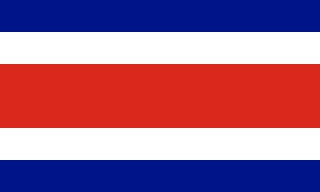
Costa Rica, officially the Republic of Costa Rica, is a country in the Central American region of North America, bordered by Nicaragua to the north, the Caribbean Sea to the northeast, Panama to the southeast, the Pacific Ocean to the southwest, and maritime border with Ecuador to the south of Cocos Island. It has a population of around five million in a land area of 51,060 km2 (19,710 sq mi). An estimated 333,980 people live in the capital and largest city, San José, with around two million people in the surrounding metropolitan area.

Miguel Ángel Rodríguez Echeverría is a Costa Rican economist, lawyer, businessman and politician who served as President of Costa Rica from 1998 to 2002. He was minister of planning from 1968 to 1970 and minister of the presidency in 1970 during the administration of Jose Joaquin Trejos Fernandez ; member of the board of the Costa Rican Central Bank from 1966 to 1969; congressman from 1990 to 1993, serving as president of the Legislative Assembly during the 1991 to 1992 period; and was elected Secretary General of the Organization of American States (OAS) in 2004. He voluntarily stepped down from this post to return to his country to face allegations of financial wrongdoing during his presidential tenure in Costa Rica. On April 27 of 2011 he was sentenced to 5 years in prison, but this ruling was later reversed in a December 2012 decision by an appeals court, which found him innocent of all charges.
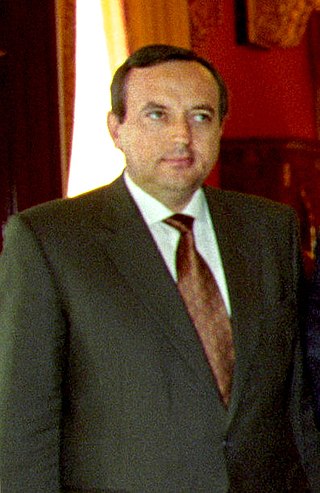
Rafael Ángel Calderón Fournier was President of Costa Rica from 1990 to 1994. He was the presidential candidate of the Social Christian Unity Party for the national elections held in February 2010, but resigned his candidacy on 5 October 2009, when he was sentenced to five years in prison for two counts of corruption.
Unions have been compared across countries by growth and decline patterns, by violence levels, and by kinds of political activity.

A referendum on the Dominican Republic–Central America Free Trade Agreement (CAFTA) was held in Costa Rica on 7 October 2007. It was originally to be held on 23 September 2007, but it was postponed on 5 June 2007 due to a court challenge. Opinion polls from April, July and August 2007 suggested that a majority of voters were in favour, while a poll from June saw a majority against. It was ultimately approved by 51.56% of voters.
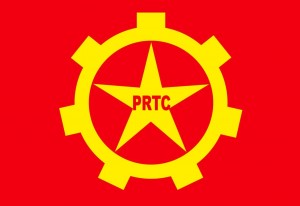
The Revolutionary Party of Central American Workers was a political party in Central America.
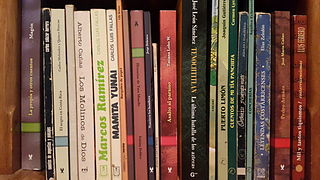
Costa Rican literature has roots in colonization and is marked by European influences. Because Costa Rica is a young country, its literary tradition is also young. The history of Costa Rican literature dates to the end of the 19th century.
Disunited and poorly organized for most of its history, trade unions in Ecuador developed only slowly and had only a marginal political impact. Precise figures on unionization in the late 1980s were practically nonexistent, even within the unions themselves. The organized labor movement in Ecuador was divided into four confederations and a number of independent federations. At the local level, labor organizations also took the form of artisan guilds, cooperatives, and neighborhood associations. In addition to representing only a minority of the workers in all sectors of employment, the labor movement traditionally was weakened by rivalry and government repression. Nevertheless, it had influence disproportionate to its numbers as a result of the concentration of trade unions in urban areas, mainly Quito and Guayaquil, its organizational power, and the political impact of strikes and demonstrations on governments that did not enjoy strong support.
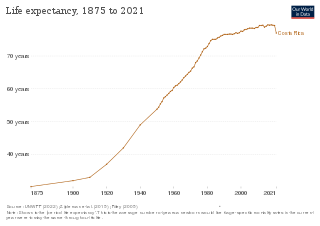
Costa Rica provides universal health care to its citizens and permanent residents. Both the private and public health care systems in Costa Rica are continually being upgraded. Statistics from the World Health Organization (WHO) frequently place Costa Rica in the top country rankings in the world for long life expectancy. WHO's 2000 survey ranked Costa Rica as having the 36th best health care system, placing it one spot above the United States at the time. In addition, the UN has ranked Costa Rica’s public health system within the top 20 worldwide and the number 1 in Latin America.
Juan Manuel Villasuso Estomba is a Costa Rican politician, writer and civil servant. He is a former member of the National Liberation Party and a current member of the Citizens' Action Party.
Guido Miranda Gutiérrez was a Costa Rican civil servant and medical doctor. Miranda is credited with spearheading the effort to push the Costa Rican Department of Social Insurance from the capital of San José into smaller municipalities and rural regions.
Trade unions in Costa Rica advocate for the rights of workers in Costa Rica. Dating back to the late 1800s, labor unions in the country have been a political force. They remain active in political and social life for many Costa Ricans.

Emilia Prieto Tugores was a graphic artist, educator, singer, composer, and scholar of folklore from the Central Valley of Costa Rica, one of the few women to enter the field of artistic satire in the first half of the 20th century. Her work was recognized with a Joaquín Monge Prize for cultural periodism in the 1984. Studying her native folklore, Prieto's collection of songs "influenced [a] generation of troubadours". The Nacional de Patrimonio Cultural Inmaterial Emilia Prieto Tugores was named for her, and awarded for the first time, in 2015.
Costa Rican nationalism is the nationalist vision of the cultural and national identity of Costa Rica. According to scholars such as Tatiana Lobo, Carmen Murillo and Giovanna Giglioli, Costa Rican nationalism is based on two main myths; rural democracy since colonial times and the racial (white) "purity" of the Central Valley as the cradle of Costa Rican society.

The Olympus Generation, also called the 900 Generation, is the name given in Costa Rica to a group of intellectuals, teachers, historians, politicians and writers of liberal and positivist thought, whose ideas and philosophical, political, academic and cultural contributions were reflected in the sciences, arts, literature and politics between 1890 and 1920, this was the historical stage of Costa Rica where the liberal state is consolidated. Traditionally, they're known as the Olympus generation in reference to the Olympian gods of classical mythology, because most of them belonged to an oligarchic elite with political and economic power obtained from the international coffee trade during the second half of the 19th century. This was the nickname given by their detractors due to the arrogance of many of its members. The Olimpo generation played a leading role in the gestation of culture, national identity and the consolidation of the Costa Rican State.

The Reform State or Reformist State is a period in Costa Rican history characterized by the change in political and economic paradigm switching from the uncontrolled capitalism and laissez faire of the Liberal State into a more economically progressive Welfare State. The period ranges from approximately 1940 starting with the presidency of social reformer Rafael Angel Calderón Guardia and ends around the 1980s with the first neoliberal and Washington Consensus reforms that began after the government of Luis Alberto Monge.

Sara Casal de Quirós was a Costa Rican teacher, writer and community worker. She was a pioneer of the women's rights movement in Costa Rica and wrote the first book defending women's rights in the country.
Anarchism in Costa Rica emerged in the 1890s, when it first came to the attention of the country's ruling elites, including the Catholic Church.










